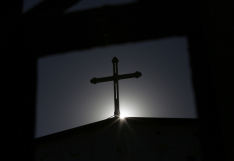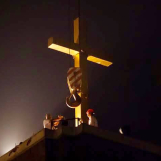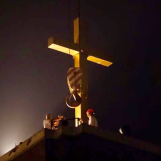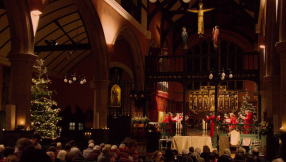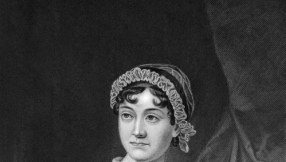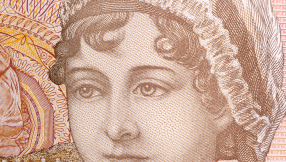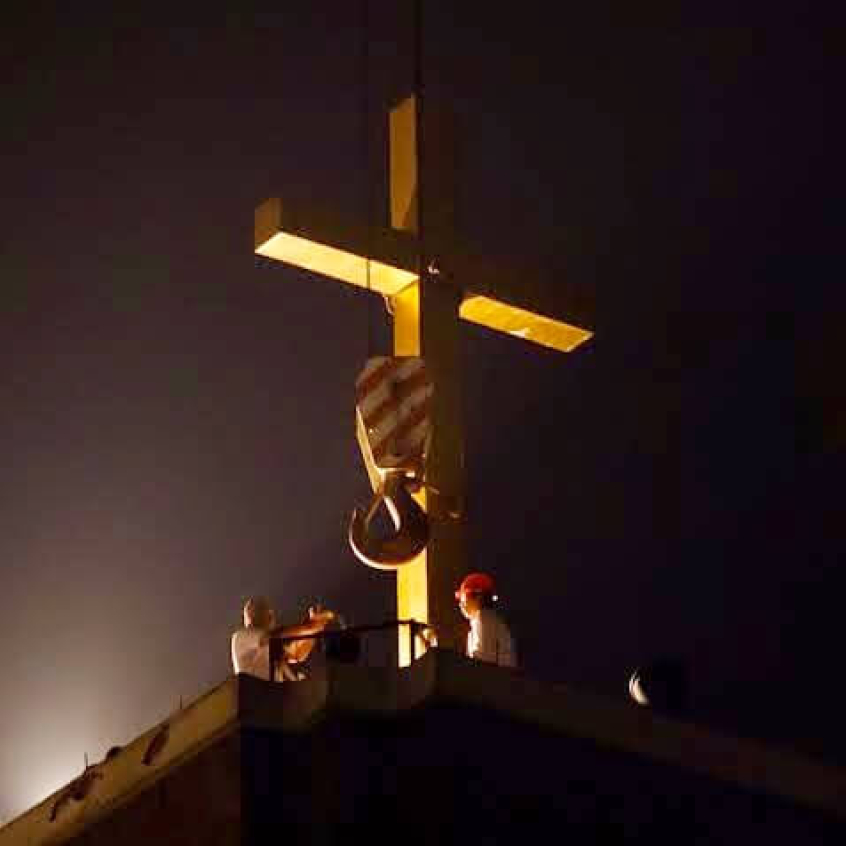
The growth of Chinese Christianity is one of the most remarkable gospel stories of the 20th and 21st centuries.
After the victory of the communists, all foreign missionaries were expelled from the country by 1953 and the future for Christianity looked bleak. However, far from it leading to the demise of the faith there, the freedom from foreign influence may have helped kick-start a massive expansion. In spite of rigorous government oversight and waves of persecution, there are now an estimated 100 million Christians in China. It's even been suggested that 40 per cent of members of the Communist Party are Christians – an astonishing statistic.
Most recently, repression has hit in the form of a campaign against many churches in Zhejiang province. Crosses – as the visible sign of Christianity – have been torn down and churches have been demolished. Pastors have been imprisoned on what appear to be trumped-up charges and lawyers who dare to represent them have also been detained.
The repression is fiercest in Zhejiang for a reason. It's Zhejiang that saw the bloodiest fighting in the worst civil war in history – and one of the armies that fought was 'Christian', in the loosest sense of the word. The memory of the Taiping Rebellion (1850-64) against the ruling Qing dynasty has cast a long shadow over the image of Christianity in China.
The leader of the Taipings was Hung Hsiu-Ch'uan, a clerk who failed his civil service examinations in Canton. He made the acquaintance of a Protestant missionary who taught him the Bible. Back home in his village he was struck by sickness and was in a coma for four days; when he recovered he said he had had a vision in which he was shown he was the younger brother of Jesus and had been taken to meet him in heaven.
He was a street preacher for 10 years, but became unorthodox in his teaching. He denied the divinity of Christ and borrowed many ideas from Confucianism. Hung's sect, the 'God Worshipping Society' was attacked by local officials, touching off a war that was to leave millions dead. Estimates vary, but 20 million is regarded as a minimum, with up to 70 million as an upper figure. Millions more were displaced, the fertile Yangtse valley was turned into a desert and the Qing dynasty was fatally weakened.
Zhejiang saw some of the worst of the fighting. One writer, Wen-hsin Yeh (in Provincial Passages: Culture, Space, and the Origins of Chinese Communism), says that a decade after the uprising, Zhejiang's population was only 40 per cent of what it was before. In the city of Hangzhou the population was reduced from 810,000 to only 50,000. In the hotly-contested area of Xiaofeng, only one in 30 people remained. The death toll was staggering.
The rebellion was brought under control with the help of a British officer, Charles Gordon, seconded to the Imperial forces; 'Chinese Gordon' was to win immortality as Gordon of Khartoum. But the damage to Christianity had been done. As Dyron Daughrity writes in The Changing World of Christianity: "The Chinese people made a link between Christianity and this event. It was the most severe blow to Christianity in Chinese history; the residual effects are incalculable."
The Taiping Rebellion was driven as much by despair at poverty and oppression as by religious fanaticism. However, it planted a deep suspicion of Western religion – which was in any case associated with Western colonialism – in the minds of many Chinese. The increasing influence of foreign powers resulted in a backlash in the Boxer Rebellion of 1900, in which hundreds of missionaries were murdered and thousands of Chinese Christians – and again, Zhejiang was at the heart of the violence. It was put down by foreign military force, foreigners were allowed to station troops in Beijing and China had to pay more than $330 million in reparations (most of which was later remitted). Not long after that, the Qing dynasty fell.
In a Radio 4 interview on Sunday, Martin Palmer, Secretary General of the Alliance of Religions and Conservation and a frequent traveller to China, suggested Zhejiang's long anti-Christian tradition was not representative of the country as a whole.
"The vast majority of Christians aren't being persecuted," he said. "On the whole, they have a fairly easy life."
Palmer noted that China is very aware that the vast majority of palliative care for people with HIV/Aids is done by churches and that most orphanages are run by churches. But, he said: "They know religion can also be deeply dangerous."
Is the current backlash against Christians in Zhejiang a reflection of its historical hostility? Perhaps: but according to China Aid's Bob Fu, the campaign is "absolutely authorised by the central government, most likely approved by President Xi himself. It is already beyond a reasonable doubt."
Fu says the targets this time are official Catholic and Protestant Churches and their "disobedient leaders", not just the more vulnerable underground churches.
"The central ethos is to 'contain the over heated growth of Christianity' in the name of sinosization of Christianity in China so that Christianity would not pose a potential threat to the Chinese Communiist Party's rule like the Taiping or Yellow Lotus did to the dynasties," he says.
He's clear, too, that the crackdown against lawyer Zhang Kai, pastor Gu Yuese and the heavy sentence imposed on pastor Bao Huohua, his wife and son as well as 10 others leaders are "absolutely political revenge due to their work in defending the cross in one way or the other".
With all its astonishing growth, the Church in China is still labouring under the burden of history. It's still seen as dangerous, potentially destabilising and unpatriotic. The state wants to use it, but it wants to control it. It cannot allow freedom of religion, but religion naturally wants to be free. And the Church is being caught up in the huge social changes that are affecting China, with the country's massive industrialisation and huge increases in personal wealth.
Everything is changing. But China's treatment of its pastors and churches in Zhejiang reflects the fears of a previous age. Threats to the state don't come from Christianity, which is an influence for stability rather than chaos. It surely would be far wiser – as well as more just – for China to make friends with the Church and see it as a partner rather than see it as an alien enemy.
Follow Mark Woods on Twitter: @RevMarkWoods










